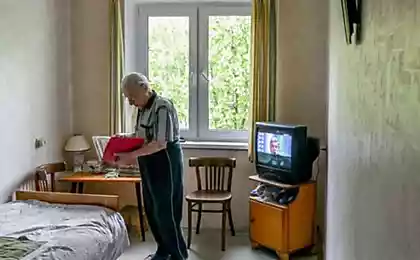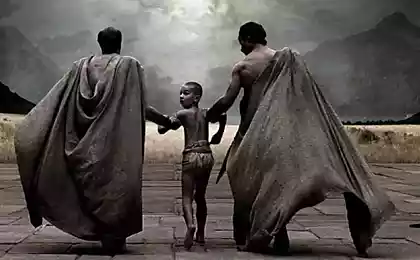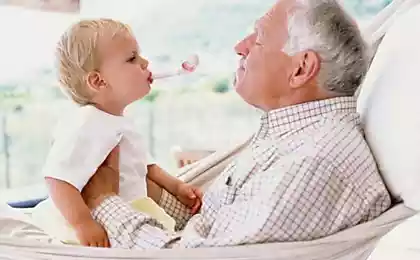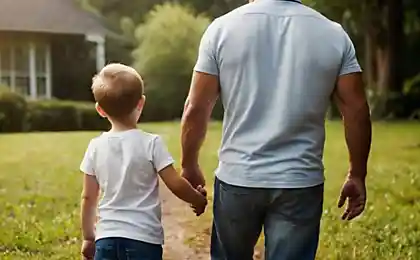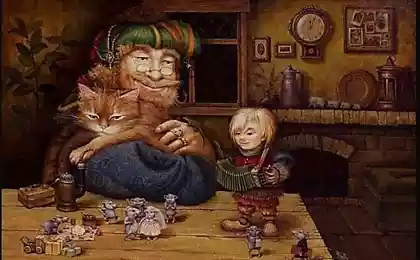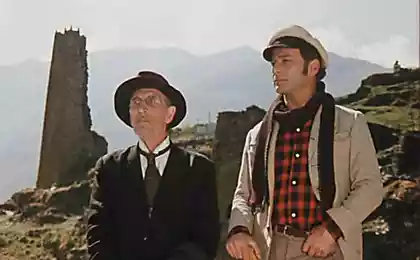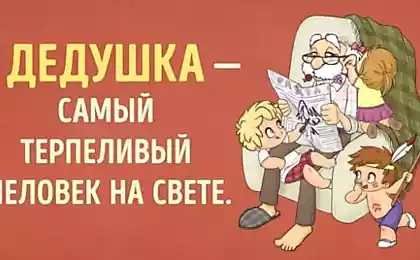587
Memory — only version
When I was six years old, I lost the house key. It happened the first of September. First day of school. Dad said, "Go find". I went.
Two hours, or three in a row, I researched the route home-school, school-house, trying to reconstruct the events: here I was riding along, then skipping, then stopped, then stroked the cat (bent, the key fell out), then brandished found by the branch, hitting invisible enemies (and the key fell out), then he said the neighbor showed him a pencil case, textbooks and notebooks (opened the portfolio, the key fell out), then climbed the tree to reach the fruit of the mulberry tree that grew too high to pluck them, standing on the ground (and the key fell out)...
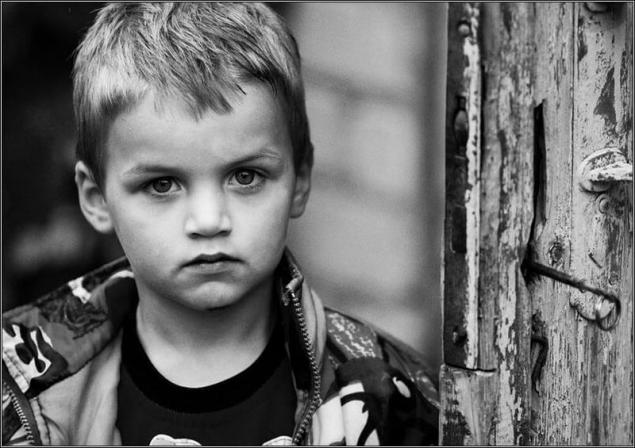
I haven't found anything.
To return with empty hands could not, and continued, hopelessly howling, pacing the house-school, school-house.
Dark. I have not looked under the bushes and under the rocks, stopped to look at his feet: it was clear that the key is lost completely.
Slicing the tenth or the hundredth circle of personal hell, I met my grandfather. He pretended that our meeting accidental, although it was clear: he was here because our compassionate grandmother sent to look for saprophage the lone Ranger, a first grader. I knew that almost certainly, but nobody was quite sure: I didn't deserve to be found. Because I LOST the KEY!
— Want, we can look together?
Of course! While I was looking for the damn key yourself, it was dreary and disgusting: I was to BLAME. I was being PUNISHED. To look for the key with my grandfather — it is quite another thing: it's like that in the Indians.
We found him almost immediately. The key was on the bench.
I was sitting on this bench when I was showing the neighbor pencil case, textbooks and notebooks. The key was in the little pocket of the portfolio, and when I took out the pencil case, it fell out.
But somehow, before the meeting with grandpa, while I tens, hundreds, thousands of times played this scene in my mind, I was absolutely, dead sure talked with a neighbor standing and not sitting. And not on the bench, and in the alley under the trees.
And only when the key is found, I remembered how things REALLY are.
Where grandpa found out what happened? Why am I, a direct participant in the events, albeit six years old, couldn't remember, and grandpa, I could tell that on the way home from school I met Ivan matveich that Ivan matveich asked how was your first day of school, I boasted the first rating and the first sharpened pencil, I showed him the notebooks... grandfather, who was not there who know my words, immediately guessed where to look for the key?
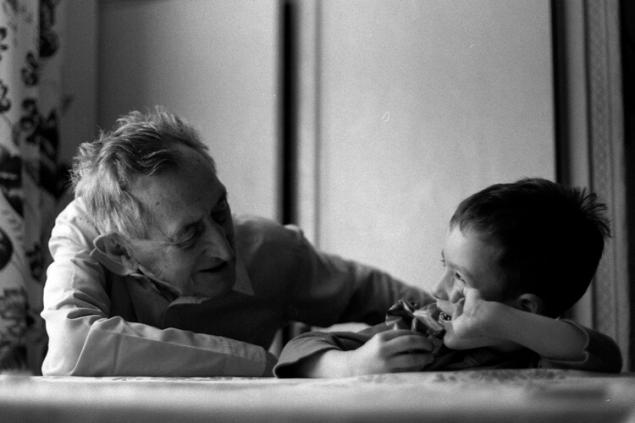
The answer is a piece of cake. Grandfather was not GUILTY. He was just looking for the key. I was to BLAME, and not the key I was looking for and served his SENTENCE. That's the difference.
Children's psyche is very flexible. To convince the child that he did something (or something did), charging that "something" guilt — a breeze.
Especially if to do accepted. If everyone does it. If you yourself did that, too. And with thy father, and the father of your father...
Be a man! Don't look away! Stay on your toes! Be like me! Be me!
— Dad just wants you was the best part, explained my mother.
I didn't believe it. And now don't believe.
We recently spoke with father about it and he said that more than anything it was sad to think about how unreasonably strictly he treated children. I don't blame him.
He is guilty of no more and no less a first grader who lost the key to your first day of school.
However, I don't want to repeat the trajectory of his fate, and do everything possible to me and my children nothing of the sort happened.
And yet: what happened REALLY?
There is no "the cause". And this is all "business".
This does not mean that nothing ever happens. This means that our memory is not able to exactly reproduce any event, even the recent past, not to mention the past any distant.
Even Western science, until recently, openly blind to the relation of consciousness and its frills, today knows that memory should not be trusted.
Again, not to be unfounded, I propose to all interested parties to apply to modern research in neurophysiology (for example, see "The Emerging Mind" Vilayanur Ramachandran, one of the leading experts in this field, President of the American Academy of neurology).
IN FACT, we only know that the mind is easily able to play along with external circumstances: he called you a pig will grunt until blue in the face, yet continue to believe in their own beastliness.
I think I didn'T WANT to find the key, yet my guilt was not finally overweight or obesit. While he was GUILTY, I was looking for it in all the wrong places. My memory has built his version of the incident so that the key was not found. If it seems strange, talk to a good professional psychologist. Such things happen very often (in fact — every day, with each of us).
Grandpa WANTED to find the key, and was able to ignore the emotional factors surrounding these searches. Presenting our with Ivan Matveich meeting, he immediately realized that the elderly Ivan matveich, the first thing was to fall on the bench, and then to praise debutant for school success and to enjoy the view of my textbooks, notebooks and pencil case.
The grandfather immediately realized that the case — the pencil case: as soon as I said that the key was in the same pocket, and pencil case. No need to be S. Holmes to figure out what to sow key I could, only opening his pocket book, and I undid it on the way home from school only once — to show Ivan Matveich a brand new wooden pencil box with blue ducks on the sliding lid (25 cents at a stationery store).
That's what it REALLY is.
But maybe not.
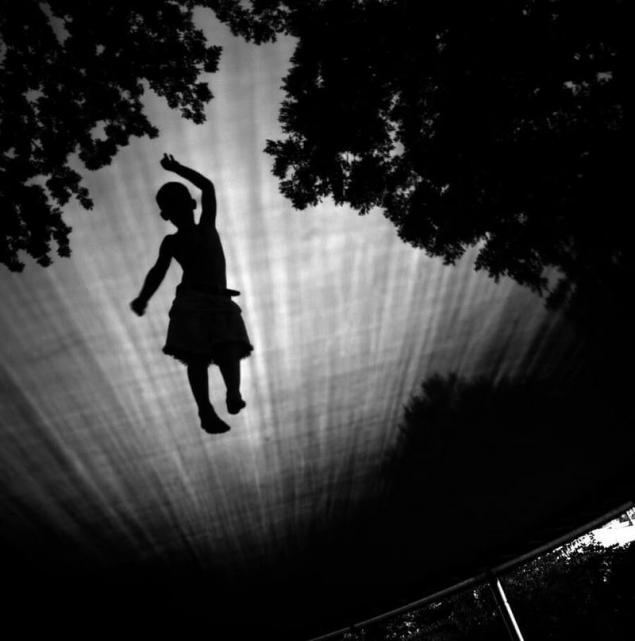
Thinking about it now, I probably stretching the truth to make his story convincing. I'm not doing this on purpose. Or rather, I don't know if I do it on purpose.
On purpose or not on purpose? — a difficult question. We think that we know that was done deliberately, and what happened by itself, ACCIDENTALLY.
But we don't know.
I really lost the key the first of September, six years old. Father really forced me to look for him. Grandpa really helped me to find it. The key really was on the bench.
I can say with more or less certainty, because besides me remember it more. While grandpa was alive, they remembered the story. Mom and I were talking about this recently. She remembered that I was looking for the key, but could not remember exactly when it happened. Father remember these events better than I do.
Therefore, there is a probability that it was so.
But it's still just a possibility. We will never know the truth.
Even if we made a video during the action, something always would have remained behind the scenes.
Our version of events — only version, and not what has actually happened.
This statement seems trivial, even unworthy of discussion — while we are not convinced that they are acting the opposite of its meaning. Like you don't know about this...
We do so deliberately or accidentally?.. published
Author: Dmitry Deitch
Also interesting: a Long stress erases memory
Mind games or second-class reflections
Source: booknik.ru/library/all/pamyat/
Two hours, or three in a row, I researched the route home-school, school-house, trying to reconstruct the events: here I was riding along, then skipping, then stopped, then stroked the cat (bent, the key fell out), then brandished found by the branch, hitting invisible enemies (and the key fell out), then he said the neighbor showed him a pencil case, textbooks and notebooks (opened the portfolio, the key fell out), then climbed the tree to reach the fruit of the mulberry tree that grew too high to pluck them, standing on the ground (and the key fell out)...

I haven't found anything.
To return with empty hands could not, and continued, hopelessly howling, pacing the house-school, school-house.
Dark. I have not looked under the bushes and under the rocks, stopped to look at his feet: it was clear that the key is lost completely.
Slicing the tenth or the hundredth circle of personal hell, I met my grandfather. He pretended that our meeting accidental, although it was clear: he was here because our compassionate grandmother sent to look for saprophage the lone Ranger, a first grader. I knew that almost certainly, but nobody was quite sure: I didn't deserve to be found. Because I LOST the KEY!
— Want, we can look together?
Of course! While I was looking for the damn key yourself, it was dreary and disgusting: I was to BLAME. I was being PUNISHED. To look for the key with my grandfather — it is quite another thing: it's like that in the Indians.
We found him almost immediately. The key was on the bench.
I was sitting on this bench when I was showing the neighbor pencil case, textbooks and notebooks. The key was in the little pocket of the portfolio, and when I took out the pencil case, it fell out.
But somehow, before the meeting with grandpa, while I tens, hundreds, thousands of times played this scene in my mind, I was absolutely, dead sure talked with a neighbor standing and not sitting. And not on the bench, and in the alley under the trees.
And only when the key is found, I remembered how things REALLY are.
Where grandpa found out what happened? Why am I, a direct participant in the events, albeit six years old, couldn't remember, and grandpa, I could tell that on the way home from school I met Ivan matveich that Ivan matveich asked how was your first day of school, I boasted the first rating and the first sharpened pencil, I showed him the notebooks... grandfather, who was not there who know my words, immediately guessed where to look for the key?

The answer is a piece of cake. Grandfather was not GUILTY. He was just looking for the key. I was to BLAME, and not the key I was looking for and served his SENTENCE. That's the difference.
Children's psyche is very flexible. To convince the child that he did something (or something did), charging that "something" guilt — a breeze.
Especially if to do accepted. If everyone does it. If you yourself did that, too. And with thy father, and the father of your father...
Be a man! Don't look away! Stay on your toes! Be like me! Be me!
— Dad just wants you was the best part, explained my mother.
I didn't believe it. And now don't believe.
We recently spoke with father about it and he said that more than anything it was sad to think about how unreasonably strictly he treated children. I don't blame him.
He is guilty of no more and no less a first grader who lost the key to your first day of school.
However, I don't want to repeat the trajectory of his fate, and do everything possible to me and my children nothing of the sort happened.
And yet: what happened REALLY?
There is no "the cause". And this is all "business".
This does not mean that nothing ever happens. This means that our memory is not able to exactly reproduce any event, even the recent past, not to mention the past any distant.
Even Western science, until recently, openly blind to the relation of consciousness and its frills, today knows that memory should not be trusted.
Again, not to be unfounded, I propose to all interested parties to apply to modern research in neurophysiology (for example, see "The Emerging Mind" Vilayanur Ramachandran, one of the leading experts in this field, President of the American Academy of neurology).
IN FACT, we only know that the mind is easily able to play along with external circumstances: he called you a pig will grunt until blue in the face, yet continue to believe in their own beastliness.
I think I didn'T WANT to find the key, yet my guilt was not finally overweight or obesit. While he was GUILTY, I was looking for it in all the wrong places. My memory has built his version of the incident so that the key was not found. If it seems strange, talk to a good professional psychologist. Such things happen very often (in fact — every day, with each of us).
Grandpa WANTED to find the key, and was able to ignore the emotional factors surrounding these searches. Presenting our with Ivan Matveich meeting, he immediately realized that the elderly Ivan matveich, the first thing was to fall on the bench, and then to praise debutant for school success and to enjoy the view of my textbooks, notebooks and pencil case.
The grandfather immediately realized that the case — the pencil case: as soon as I said that the key was in the same pocket, and pencil case. No need to be S. Holmes to figure out what to sow key I could, only opening his pocket book, and I undid it on the way home from school only once — to show Ivan Matveich a brand new wooden pencil box with blue ducks on the sliding lid (25 cents at a stationery store).
That's what it REALLY is.
But maybe not.

Thinking about it now, I probably stretching the truth to make his story convincing. I'm not doing this on purpose. Or rather, I don't know if I do it on purpose.
On purpose or not on purpose? — a difficult question. We think that we know that was done deliberately, and what happened by itself, ACCIDENTALLY.
But we don't know.
I really lost the key the first of September, six years old. Father really forced me to look for him. Grandpa really helped me to find it. The key really was on the bench.
I can say with more or less certainty, because besides me remember it more. While grandpa was alive, they remembered the story. Mom and I were talking about this recently. She remembered that I was looking for the key, but could not remember exactly when it happened. Father remember these events better than I do.
Therefore, there is a probability that it was so.
But it's still just a possibility. We will never know the truth.
Even if we made a video during the action, something always would have remained behind the scenes.
Our version of events — only version, and not what has actually happened.
This statement seems trivial, even unworthy of discussion — while we are not convinced that they are acting the opposite of its meaning. Like you don't know about this...
We do so deliberately or accidentally?.. published
Author: Dmitry Deitch
Also interesting: a Long stress erases memory
Mind games or second-class reflections
Source: booknik.ru/library/all/pamyat/





